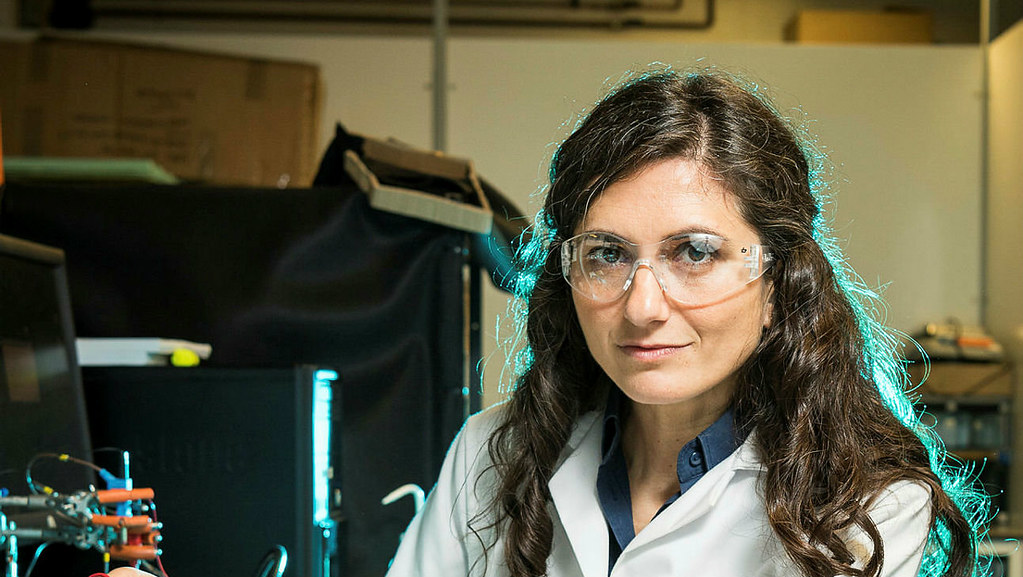Gaining an understanding of existing water resources
A new international network of water security provision experts, led by the University of Bath’s Water Innovation and Research Centre (WIRC @ Bath), is aiming to address the limited amount of safe drinking water available in Mexico.
The network will bring together water security provision experts with local NGOs, government bodies and water companies to identify key issues and gain a detailed understanding of existing water resources and pollution hot spots.
Led by Dr Mirella Di Lorenzo from WIRC @ Bath, the multidisciplinary team will include experts from the University of Bath, University of Bristol, and the Mexican NGO Fomento Mexicano para el Desarrollo Sustentable, and will aim to develop innovative and affordable solutions for water provision in the poorest areas of Mexico.
The 10-month MAPwater project, funded by the Royal Academy of Engineering (RAeng) will focus on the Mexican rural community of Llano Grande, close to Mexico City, where access to safe water is a major challenge.
Using this area as a case study, the research team will gather historical data on the distribution of water resource availability; identify pollution hotspots; engage with members of the Llano Grande community to gain insights into the challenges they face regarding sourcing safe drinking water; and develop a collaborative network of researchers with researchers from Mexican universities and local environmental agencies and water companies.
Safe drinking water still a luxury
In many rural communities in Mexico, access to safe drinking water is still a luxury, with ground water the main source of drinking water. However, the extensive and unregulated extraction of ground water to meet the demands of a growing population is the main cause of widespread severe soil sinking and cracking.
Mexican water systems suffer significantly from the impacts of direct discharges of pollutants from domestic, agricultural and industrial activities with the consequent pollution posing serious risks to human health, with particular impacts on poorer, vulnerable and rural communities.
A multidisciplinary approach
Lead investigator and Senior Lecturer in the Department of Chemical Engineering, Dr Mirella Di Lorenzo, said: “This is an exciting opportunity to engage with the research community in Mexico and key local stakeholders, to collaboratively address the challenge of water scarcity and quality in rural areas of Mexico.
“So far, we have assembled a highly multidisciplinary team, involving experts in water quality, hydrogeology, modeling and social science and we aim to expand these expertises even further. MAPwater will also have an important component of public engagement to collect opinions and needs of the end users.”
The MAPwater team’s overall long term vision is to contribute towards achieving the United Nations Sustainable Development Goals of ‘good health and wellbeing’ and ‘access to clean water and sanitation’ in Mexico. The creation of such a network of experts as well as the development of strategies for effective water management, will play key parts in achieving this vision.
The findings from this research will also pave the way for further potential projects which will investigate developing low-cost, sustainable and effective engineering technologies to guarantee safe water and sanitation in the poorest areas of the country.
Chairman of Fomento Mexicano, Rodolfo Rueda, added: “Clean and accessible water for all the Mexicans and citizens of other developing countries is an essential part of the world we want to live in; in Fomento Mexicano we strongly believe that supporting the participation of local communities and strengthen synergies between private entities, academy, and public sector will be crucial in order to achieve by 2030, a universal and equitable access to safe and affordable drinking water for all.”
Whilst this project is focussed specifically on water provision in Llano Grande, the researchers believe the outcomes of this research will be far reaching and can be applied anywhere in the developing world where the provision of sustainable and low-cost solutions for safe water is critical.
The MAPwater team
- Dr Mirella Di Lorenzo, Senior Lecturer in the Department of Chemical Engineering, University of Bath
- Dr Jannis Wenk, Lecturer in the Department of Chemical Engineering, University of Bath
- Dr Thomas Kjeldsen, Senior Lecturer in the Department of Architecture & Civil Engineering, University of Bath
- Dr Elias Martinez Hernandez, Lecturer in the Department of Chemical Engineering, University of Bath
- Dr Francesca Pianosi, Lecturer in Water and Environmental Engineering, University of Bristol,
- Rodolfo Rueda, Chairman of Fomento Mexicano.

